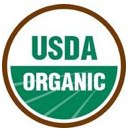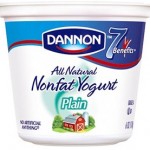It seems more people are seriously starting to consider what they choose to eat and how it is prepared. If you are seeking foods that are better for you, your family’s health, and the environment, here are a few key terms that will make it easier for you to choose wisely.
“Organic”
Organic produce is grown without synthetic fertilizers, herbicides, and pesticides. Organic meat and dairy livestock receive no antibiotics or added hormones and are raised on only organic feed. Organic products never use genetic engineering or irradiation. Organic farming promotes healthy soil, biodiversity, and helps conserve water and ecological systems. Moreover, it keeps chemicals out of our water, air, and earth. Oh, and organic farmers use as many renewable resources as possible.
The U.S. Department of Agriculture (USDA) strictly enforces proper handling and organic production. Listed below are the two categories that are certified by qualified third parties. By law, only these products can officially carry the USDA seal, so look for it when you shop.
- 100% Organic – Products that contain all organically produced ingredients.
- USDA Certified Organic – Products that contain 95% or more organic ingredients.
“Made with Organic Ingredients”
When you see this phrase on the front of a product, that means it’s made with 70 – 94% organic ingredients. So read the ingredient listing on your products to determine what exactly is organic. Some products may also have a portion of organic ingredients that is less than 70%. Those organic ingredients should be listed on the nutritional panel as well.
“All-Natural”

This means foods that are minimally processed and contain no artificial colors, flavors, preservatives, or sweeteners.
“Earth- Friendly”
This term refers to being produced in such a way to minimize any negative impact on the environment. Good examples of earth-friendly products are those that are biodegradable, chemical-free, or made of recycled post-consumer waste.
“Vegetarian”
This is the description given to foods derived from plant sources such as fruits, grains, legumes, and nuts. It also contain egg and dairy products.
“Vegan”
Completely and solely derived from plant origin, this means there are absolutely no animal ingredients or byproducts such as eggs, dairy products, or honey.
In conclusion, since many food companies are extremely good at marketing their products, choosing which is really the best and most legit, may seem tricky. But, you now know what key words to look for, so be sure to read the ingredients list and food labels before hitting the checkout line.
